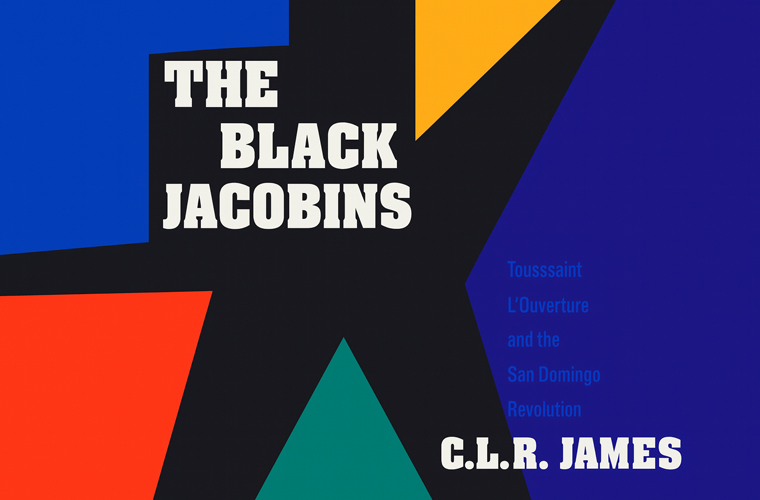C.L.R. James’s The Black Jacobins: Toussaint L’Ouverture and the San Domingo Revolution, first published in 1938, stands as a seminal work in the study of revolutionary movements, colonialism, and the struggle for freedom. This historical masterpiece chronicles the Haitian Revolution (1791–1804), the only successful slave revolt in history, which led to the establishment of Haiti as the first independent Black republic. Through the lens of Toussaint L’Ouverture, the revolution’s central figure, James weaves a narrative that is both a detailed historical account and a powerful analysis of race, class, and resistance against oppression.
The Haitian Revolution unfolded in the French colony of Saint-Domingue, a Caribbean economic powerhouse built on the brutal exploitation of enslaved Africans. By the late 18th century, Saint-Domingue produced nearly half of the world’s sugar and coffee, generating immense wealth for France. However, this prosperity came at a horrific cost: enslaved people, who made up over 90% of the population, endured unimaginable suffering under a system of extreme violence and dehumanization.
The French Revolution of 1789, with its ideals of liberty, equality, and fraternity, ignited tensions in Saint-Domingue. Enslaved Africans, free people of color, and white colonists interpreted these ideals differently, leading to a complex web of alliances and conflicts. The Black Jacobins situates the Haitian Revolution within this global context, showing how Enlightenment ideas, colonial economics, and local resistance converged to spark a transformative uprising. At the heart of James’s narrative is Toussaint L’Ouverture, a formerly enslaved man whose strategic brilliance and political vision shaped the revolution. Born around 1743, Toussaint was self-educated, deeply perceptive, and skilled in military tactics. He emerged as a leader in 1791 when enslaved people rose against their oppressors, burning plantations and demanding freedom.
James portrays Toussaint as a complex figure: a disciplined commander, a pragmatic diplomat, and a visionary who sought to build a society free from slavery while navigating the competing interests of France, Britain, and Spain. Toussaint’s ability to unite disparate groups—enslaved rebels, free people of color, and even some white planters—demonstrates his political acumen. However, James does not shy away from Toussaint’s contradictions, such as his initial loyalty to France and his authoritarian tendencies in later years.
The Black Jacobins is a profound exploration of race and class dynamics. James, a Marxist historian, emphasizes the intersection of racial oppression and economic exploitation. The enslaved population of Saint-Domingue was not a monolithic group; class divisions among free people of color, mixed-race elites, and poor whites complicated the revolutionary struggle. James argues that the revolution’s success hinged on the unity of the enslaved masses, whose collective action overcame these divisions.
James challenges Eurocentric narratives that downplay the agency of enslaved people. He demonstrates that the Haitian Revolution was not a byproduct of European conflicts but a deliberate, organized effort led by Black revolutionaries. Toussaint and his successors, like Jean-Jacques Dessalines, were not passive recipients of revolutionary ideals but active agents who adapted and expanded them to suit their context.
The revolution’s triumph came at a steep cost. The Black Jacobins details the immense violence, economic devastation, and political instability that accompanied the struggle. Toussaint’s eventual betrayal by Napoleon, who ordered his arrest in 1802, underscores the precariousness of revolutionary gains in the face of imperial power. Yet, the establishment of Haiti in 1804 as a free nation remains a testament to the resilience of its people.
The Black Jacobins is more than a historical account; it is a call to action. Written during a period of global anti-colonial movements, James’s work inspired activists and intellectuals by showing that oppressed peoples could overthrow their oppressors. The book remains a foundational text in postcolonial studies, African diaspora studies, and revolutionary history.
James’s analysis also resonates in contemporary discussions of systemic racism and inequality. By highlighting the Haitian Revolution’s global significance, he underscores the interconnectedness of struggles for justice across time and space. The book’s enduring relevance lies in its ability to illuminate the power of collective resistance and the challenges of sustaining revolutionary change.
C.L.R. James’s The Black Jacobins is a monumental work that brings to life the Haitian Revolution’s complexities and triumphs. Through Toussaint L’Ouverture’s story, James celebrates the indomitable spirit of those who fought for freedom against overwhelming odds. The book is both a scholarly achievement and a rallying cry, reminding us that the fight for justice requires courage, unity, and an unwavering commitment to human dignity. As we reflect on the Haitian Revolution, The Black Jacobins challenges us to consider the ongoing struggles for equality and the enduring legacy of those who dared to resist.

